Environmental socio-scientific issues in (teacher) education for science & mathematics (May, 20, 2021)
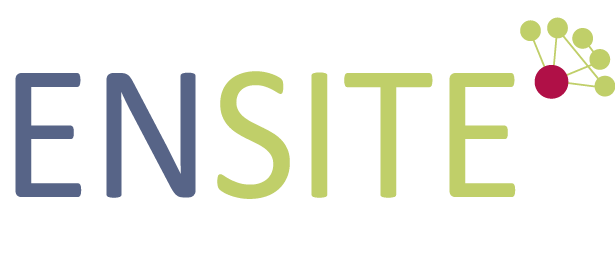 |
Online Seminar/Multplier Event, May 20, 2021
by Elwier/Ecent, Utrecht University . In the context of the Ensite project. Register (online form, we will send a confirmation, no costs). |
- Environmental socio-scientific issues in (teacher) education for science & mathematics
- International multiplier event for STEM teacher educators by Ensite
- Thursday 20th may 2021, 13:45-17:00
- The workshop is planned prior to the Yearly national conference for Stem teacher Educators (Friday May 21).
- Register
- Flyer (pdf)
- Padlet with the Ensite Posters
Abstract
Should vaccination be compulsory? Is it possible to use only ‘renewable energy’? Can global warming be stopped?
The relevance of paying attention to this type of socially relevant scientific dilemma’s (socio-scientific issues) in teacher training for science and mathematics is increasing. After all, education has the task of preparing pupils for a future in which they are able to think along and decide on these kinds of issues.
SSI are little structured, open problems or dilemmas that have multiple solutions. Underlying data plays an important role in making decisions on such issues. Using mathematics, in particular statistics on large databases, therefor can play an important part in this.
In this multiplier event of the Ensite project we will talk about how science and mathematics teacher educators can incorporate SSI. We focus on environmental SSI and use experiences and ideas from Ensite and other European projects on this subject (Parrise, MasDiv).
We invite teacher educators of STEM-subjects and other interested parties to register.
Schedule
| 13:45-14:00 | Introduction |
| 14:00-15:00 |
Invited plenary – Christine Knippels (Utrecht University, Freudenthal Institute) – SSI and IBL
To make responsible decisions regarding SSIs, such as increased carbon dioxide emissions, deployment of resources, citizens need to consider both scientific knowledge and personal and social values and beliefs. Fostering these aspects of democratic citizenship is an important aim of science education (European Commission, 2015). SSIBL aims to foster responsible research and innovation through science education, by connecting SSIs with inquiry-based learning and citizenship education (Levinson et al., 2017). Christine will show how SSIBL was developed (for example in the Parrise project), will talk about the challenges of giving the right attention to SSIBL in teacher training, and show some results of recent research: How do pre-service teachers value SSIBL-pedagogy? |
| 15:00-15:15 | Explanation about the topics in the four sessions |
| 15:15-15:30 | Break |
| 15:30-16:15 | Four groups with Topic discussions |
| 1 – Reasoning, argumentation and critical thinking (Gultekin Cakmakci, IO2) | 2 – Analysing (big) data – and collecting data (Monica Wijers, IO4) | 3 – Decision making in relation to the aspect of learning (Martin Bilek, IO5) | 4 – Developing a SSI lesson I – focus on didactic aspects (Hilde Ervik & Ellen Andersson, IO9) |
| 16:15-16:30 | Final Plenary – and farewell |
Participants will learn how to teach science and maths, with the use of socioscientific issues.
Posters/Topics
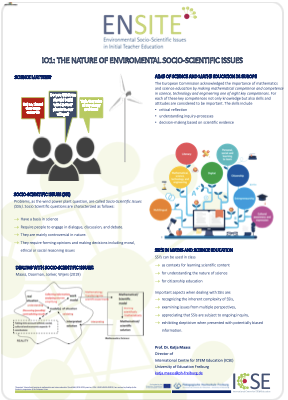
|
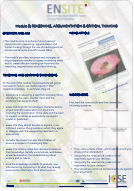
|
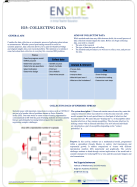
|
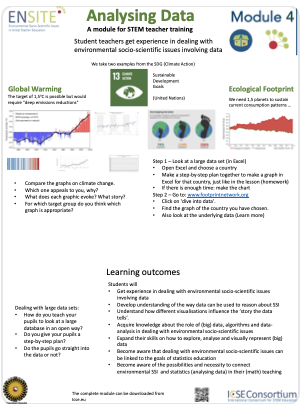
|
| The nature of SSI | Reasoning, argumentation and critical thinking | Collecting data | Analysing (big) data |
|
IO1 – Germany Oliver Strasser |
IO2 – Turkey Gultekin Cakmakci |
IO3 – Bulgaria Jeni Stoimenova |
IO4 – Netherlands Monica Wijers |
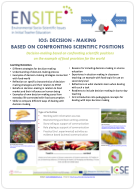
|
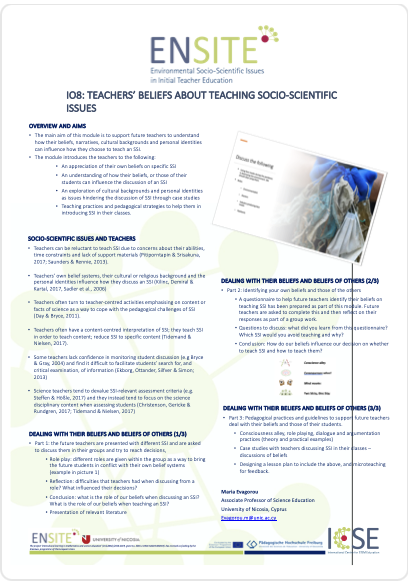
|
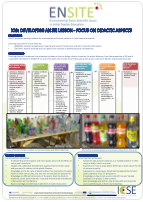
|
|
| Decision making in relation to the aspect of learning | Beliefs on teaching SSI | Developing a SSI lesson I – focus on didactic aspects | |
|
IO5 – Czech republic Martin Bilek |
IO8 – Cyprus Maria Evagorou |
IO9 – Norway Hilde Ervik & Ellen Andersson |
References
- Amos, R., Knippels, M.-C. and Levinson, R. (2020). Socio-Scientific Inquiry-Based Learning: Possibilities and Challenges for Teacher Education Contemporary Trends and Issues in Science Education, 41–61. 10.1007/978-3-030-40229-7_4
- Amos, R., Knippels, M. C. P. J., Kyza, E. and Levinson, R. (2018). Science with and for society (Theme Editorial) School Science Review, 371, 29
- Cakmakci, G. and Yalaki, Y. (2018). Promoting pre-service teachers’ ideas about nature of science through science-related media reports. In O. Tsivitanidou, P. Gray, E. Rybska, L. Louca and C. Constantinou (Eds.), Professional Development for Inquiry-Based Science Teaching and Learning (pp. 137-161). Dordrecht: Springer.
- Knippels, M. C. P. J., van Dam, F. and Van Harskamp, M. (Eds.). (2017). Socio-Scientific Inquiry-Based Learning: connecting formal and informal science education with society (PDF). Utrecht: Utrecht University / Parrise.
- Knippels, M. C. P. J. and van Harskamp, M. (2018). An educational sequence for implementing socio-scientific inquiry-based learning (SSIBL) (PDF) School Science Review, 100(371), 46-52
- Kolstø, S. D. (2008). Science education for democratic citizenship through the use of history of science Science & Education, 17(8), 977-997. 10.1007/s11191-007-9084-8
- Levinson, R. (2018). Introducing socio-scientific inquiry-based learning (SSIBL) (PDF) School Science Review, 100(371), 31-35
- Zeidler, D. L., Herman, B. C. and Sadler, T. D. (2019). New directions in socioscientific issues research (PDF) Disciplinary and Interdisciplinary Science Education Research, 1(11). 10.1186/s43031-019-0008-7



